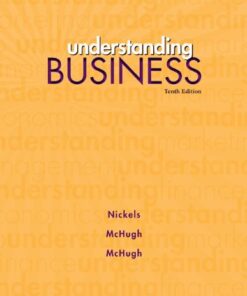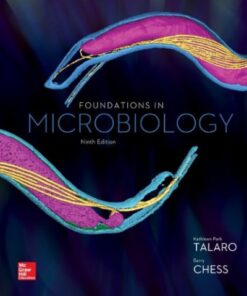Organization Development and Change Cummings 10th Edition Test Bank
$35.00
Organization Development and Change Cummings 10th Edition Test Bank
You will receive this product immediate after placing the order
Organization Development and Change Cummings 10th Edition Test Bank
Organization Development and Change Cummings Worley 10th Edition Test Bank
*** YOU ARE BUYING the Test Bank ***
Name: Organization Development and Change
Author: Cummings Worley
Edition: 10th
Type: Test Bank
– there’s a very high chance that you will see a very similar, if not exact the exact, question in the test!
– .doc, .padf, excel, or zipped in the package and can easily be read on PCs and Macs.
– Delivery is INSTANT. IMMEDIATELY once payment is done.
If you have any questions, please feel free to contact us. Our response is the fastest. All questions will always be answered in 6 hours., most of the time within 30mins
We also faced similar difficulities when we were students, and we understand how you feel.
But now, with the Organization Development and Change Test Bank, you will be able to
* Anticipate the type of the questions that will appear in your exam.
* Reduces the hassle and stress of your student life.
* Improve your studying and also get a better grade!
* Get prepared for examination questions.
*Can save you time and help you understand the material.
This is the quality of service we are providing and we hope to be your helper.
Test Bank is accurate.
Prepare to receive your Organization Development and Change Test Bank in the next moment.
If you have any questions, or would like a receive a sample chapter before your purchase, please contact us at [email protected]
Organization Development and Change Test Bank
Organization Development and Change Cummings Worley 10th Edition Test Bank
1. Which is generally correct concerning OD practitioners?
a. they are people utilizing OD principles in their profession b. they may share a common set of humanistic values
c. they have similar training, skills, and knowledge d. all of the above
ANSWER: d
POINTS: 1
DIFFICULTY: Easy
LEARNING OBJECTIVES: ODAC.CUMM.15.03.01 – 03.01
NATIONAL STANDARDS: United States – BUSPROG: Analytic
STATE STANDARDS: United States – NONE – DISC – Group Dynamics
TOPICS: A-head: Who is the Organization Development Practitioner?
KEYWORDS: Bloom’s knowledge
2. Which of the following is not a “core” skill of an OD practitioner?
a. intrapersonal skills b. interpersonal skills
c. general consultation skills
d. financial management skills
ANSWER: d
POINTS: 1
DIFFICULTY: Easy
LEARNING OBJECTIVES: ODAC.CUMM.15.03.02 – 03.02
NATIONAL STANDARDS: United States – BUSPROG: Analytic
STATE STANDARDS: United States – NONE – DISC: Individual Dynamics – Individual Dynamics TOPICS: A-head: Competencies of an Effective Organization Development Practitioner KEYWORDS: Bloom’s: Knowledge
3. One of the major limitations of the internal consultant is a. their lack of understanding of the organization
b. their access to information
c. their potential loss of objectivity d. their lack of training
ANSWER: c
POINTS: 1
DIFFICULTY: Moderate
LEARNING OBJECTIVES: ODAC.CUMM.15.03.02 – 03.02
NATIONAL STANDARDS: United States – BUSPROG: Analytic
STATE STANDARDS: United States – NONE – DISC – Group Dynamics
TOPICS: A-head: The Professional Organizational Development Practitioner
KEYWORDS: Bloom’s: Knowledge
4. Which of the following is a foundation competency required of organization development practitioners?
a. organization design b. systems dynamics
c. individual psychology
d. organizational development history
ANSWER: c
POINTS: 1
DIFFICULTY: Easy
LEARNING OBJECTIVES: ODAC.CUMM.15.03.02 – 03.02
NATIONAL STANDARDS: United States – BUSPROG:Analytic
STATE STANDARDS: United States – NONE – DISC: Individual Dynamics – Individual Dynamics TOPICS: A-head: Competencies of an Effective Organization Development Practitioner KEYWORDS: Bloom’s: Knowledge
5. Which is true of external OD consultants?
a. they are younger than internal OD consultants
b. they have less experience than internal OD consultants
c. they spend less time in OD than do internal OD practitioners d. none of the above
ANSWER: d
POINTS: 1
DIFFICULTY: Easy
LEARNING OBJECTIVES: ODAC.CUMM.15.03.03 – 03.03
NATIONAL STANDARDS: United States – BUSPROG: Analytic
STATE STANDARDS: United States – NONE – DISC: Group Dynamics – Group Dynamics TOPICS: A-head: The Professional Organizational Development Practitioner KEYWORDS: Bloom’s: Knowledge
6. The evidence suggests that OD careers are a. “cake” jobs
b. stressful
c. 5 day weeks–8 hour days d. informal
ANSWER: b
POINTS: 1
DIFFICULTY: Easy
LEARNING OBJECTIVES: ODAC.CUMM.15.03.03 – 03.03
NATIONAL STANDARDS: United States – BUSPROG: Analytic
STATE STANDARDS: United States – NONE – DISC: Group Dynamics – Group Dynamics
TOPICS: A-head: The Professional Organizational Development Practitioner
7. Ethical dilemmas of the OD practitioner concern a. misrepresentation
b. misuse of data
c. value and goal conflict d. all of the above
ANSWER: d
POINTS: 1
DIFFICULTY: Easy
LEARNING OBJECTIVES: ODAC.CUMM.15.03.05 – 03.05
NATIONAL STANDARDS: United States – BUSPROG: Ethics
STATE STANDARDS: United States – NONE – DISC: Ethical Responsibilities – Ethical Responsibilities
TOPICS: A-head: Professional Ethics
KEYWORDS: Bloom’s: Knowledge
8. refers to the ability to recognize and express emotions appropriately, to use emotions in decisions, and to regulate emotions.
a. ethics
b. emotional intelligence c. intervention
d. evaluation
ANSWER: b
POINTS: 1
DIFFICULTY: Easy
LEARNING OBJECTIVES: ODAC.CUMM.15.03.03 – 03.03
NATIONAL STANDARDS: United States – BUSPROG: Analytic
STATE STANDARDS: United States – NONE – DISC: Individual Dynamics – Individual Dynamics TOPICS: A-head: Competencies of an Effective Organization Development Practitioner KEYWORDS: Bloom’s: Knowledge
9. The term Organizational Development Practitioners refers specifically to external consultants on large scale projects. a. True
b. False
ANSWER: False
POINTS: 1
DIFFICULTY: Easy
LEARNING OBJECTIVES: ODAC.CUMM.15.03.01 – 03.01
NATIONAL STANDARDS: United States – BUSPROG: Analytic
STATE STANDARDS: United States – None – DISC: HUMAN RESOURCE MANAGEMENT – HUMAN RESOURCE MANAGEMENT
TOPICS: A-head: Who is the Organizational Development Practitioner
KEYWORDS: Bloom’s: Knowledge
10. Following entry and contracting, an OD practitioner starts diagnosing an organization or department. a. True
b. False
ANSWER: True
POINTS: 1
DIFFICULTY: Easy
LEARNING OBJECTIVES: ODAC.CUMM.15.03.03 – 03.03
NATIONAL STANDARDS: United States – BUSPROG: Analytic
STATE STANDARDS: United States – NONE – DISC: Group Dynamics – Group Dynamics TOPICS: A-head: The Professional Organizational Development Practitioner KEYWORDS: Bloom’s: Knowledge
11. To be able to design and execute an intervention is not a requirement for the OD practitioner. a. True
b. False
ANSWER: False
POINTS: 1
DIFFICULTY: Easy
LEARNING OBJECTIVES: ODAC.CUMM.15.03.02 – 03.02
NATIONAL STANDARDS: United States – BUSPROG: Analytic
STATE STANDARDS: United States – NONE – DISC: Group Dynamics – Group Dynamics TOPICS: A-head: The Professional Organizational Development Practitioner KEYWORDS: Bloom’s: Knowledge
12. With the development of new and varied intervention approaches, the role of the OD professional needs to be seen as being along the entire continuum from client-centered to consultant-centered.
a. True
b. False
ANSWER: True
POINTS: 1
DIFFICULTY: Easy
LEARNING OBJECTIVES: ODAC.CUMM.15.03.02 – 03.02
NATIONAL STANDARDS: United States – BUSPROG: Analytic
STATE STANDARDS: United States – NONE – DISC: Group Dynamics – Group Dynamics TOPICS: A-head: The Professional Organizational Development Practitioner KEYWORDS: Bloom’s: Knowledge
13. Despite the flexibility of the OD profession, most OD professionals have had specific training in OD. a. True
b. False
ANSWER: True
POINTS: 1
DIFFICULTY: Easy
LEARNING OBJECTIVES: ODAC.CUMM.15.03.02 – 03.02
NATIONAL STANDARDS: United States – BUSPROG: Analytic
STATE STANDARDS: United States – NONE – DISC: Group Dynamics – Group Dynamics TOPICS: A-head: The Professional Organizational Development Practitioner KEYWORDS: Bloom’s: Knowledge
14. Discuss the role of the OD practitioner in depth. Outline the skills associated with effective practitioners.
ANSWER: Answer not provided.
POINTS: 1
DIFFICULTY: Challenging
LEARNING OBJECTIVES: ODAC.CUMM.15.03.02 – 03.02
NATIONAL STANDARDS: United States – BUSPROG: Analytic
STATE STANDARDS: United States – NONE – DISC: Group Dynamics – Group Dynamics
TOPICS: A-head: Competencies of an Effective Organization Development Practitioner
KEYWORDS: Bloom’s: Knowledge
15. Contrast the role of the internal consultant with that of the external consultant.
ANSWER: Answer not provided.
POINTS: 1
DIFFICULTY: Challenging
LEARNING OBJECTIVES: ODAC.CUMM.15.03.03 – 03.03
NATIONAL STANDARDS: United States – BUSPROG: Analytic
STATE STANDARDS: United States – None – DISC: HUMAN RESOURCE MANAGEMENT – HUMAN RESOURCE MANAGEMENT
TOPICS: A-head: The Professional Organizational Development Practitioner
KEYWORDS: Bloom’s: Analysis
16. What are the ethical considerations of an OD practitioner?
ANSWER: Answer not provided.
POINTS: 1
DIFFICULTY: MODERATE
LEARNING OBJECTIVES: ODAC.CUMM.15.03.04 – 03.04
NATIONAL STANDARDS: United States – BUSPROG: Ethics
STATE STANDARDS: United States – NONE – DISC: Ethical Responsibilities – Ethical Responsibilities TOPICS: A-head: The Professional Organizational Development Practitioner KEYWORDS: Bloom’s: Analysis
17. Compare and contrast the client-centered and consultant-centered approaches to OD. Discuss situations where each might be appropriate.
ANSWER: Answer not provided.
POINTS: 1
DIFFICULTY: MODERATE
LEARNING OBJECTIVES: ODAC.CUMM.15.03.04 – 03.04
NATIONAL STANDARDS: United States – BUSPROG: Ethics
STATE STANDARDS: United States – NONE – DISC: Ethical Responsibilities – Ethical Responsibilities TOPICS: A-head: The Professional Organizational Development Practitioner KEYWORDS: Bloom’s: Analysis












Reviews
There are no reviews yet.